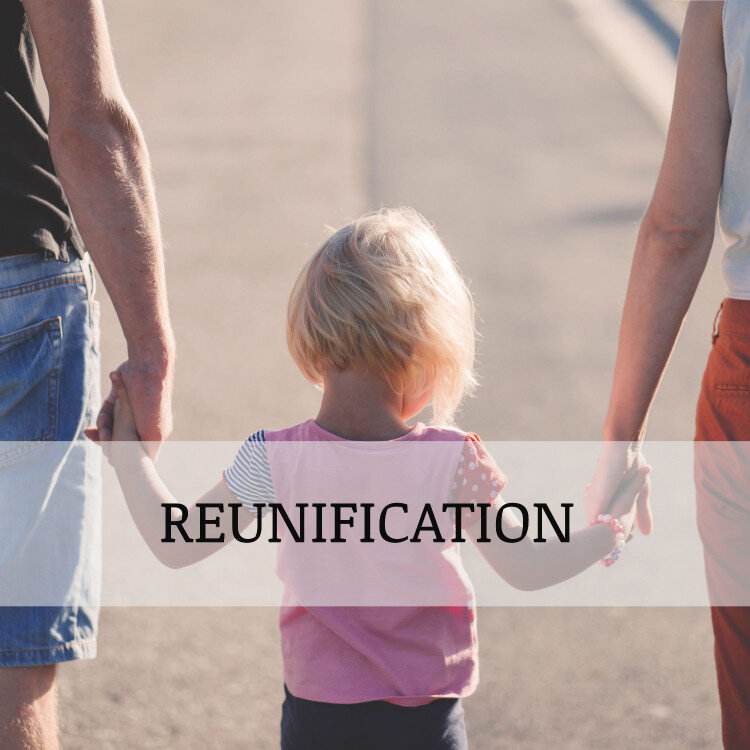
By Ashley Phelan
What would it look like if the Church took risk? If it stepped beyond what was safe and comfortable? What kind of changes would Believers experience if they held everything with open hands – their hearts, their futures, their families, their dreams, their children, their control? How would this impact their lives – their walk with (and dependency on) Christ? How would it affect those around them? How would the world be changed – for the better?
More specifically, what would it be like if the Church really believed in family reunification? Not just foster care. Or adoption. But keeping families together. What if the majority of time, effort, money, training, and energy went into preserving families of origin?
These are the types of questions that I grapple with frequently – and ask others to wrestle with as well. I believe that God calls us to jump in the trenches and get dirty. He calls us to be His hands and feet to the vulnerable, the stranger, and the orphan. The foster system is ground zero. If only 10% of the church would rise and confront the foster care crisis – we could end it.
But, I can tell you what stops many people from engaging in foster care – it’s fear. Moreover, I’ve seen that working with and supporting birth families in reunification is the biggest obstacle for couples becoming foster parents in the first place. I can’t tell you how many times I have been told, “I could never foster, it would break my heart to see a child leave my home.” Or, “I would really struggle to see parents reunify who don’t deserve it.”
Those fears are understandable. To open your heart and home to a child, and fiercely love and protect them only to say, “Good-bye,” is probably one of the hardest things you will ever do. To be scared of that, and how it will break your heart, is human. Like Mr. Rogers taught us as children, “Anything that’s human is mentionable, and anything that is mentionable can be more manageable. When we can talk about our feelings, they become less overwhelming, less upsetting, and less scary. The people we trust with that important talk can help us know that we are not alone.” So let’s talk about this some more, shall we? You are not alone in that fear.
As Believers, we have to keep fear in its proper place. If we imagine our lives as a train, fear needs to be the caboose. God’s truth needs to be the engine. Sure, we can accept that we are human and it is a part of who we are (as the caboose is a part of the train). But it can not be what drives us. If we have surrendered our lives to Christ, God needs to be the one in control and in charge.
And, we know that God is a defender of orphans and a father to the fatherless. One of the best ways we can care for the fatherless is to help keep families intact. To that end, James 1:27 is not just a call to foster and adopt. It is a command to care for the vulnerable and the stranger. This is not limited to just the foster child – but includes the whole family.
Can I be honest here? We all need to become more comfortable with the idea of reunification. Statistically, half of children in foster care go back to mom or dad, so positive connections are critical. Most children yearn to be with their birth parents (and rightly so!). The purpose of foster care is reunification – and that’s the bottom line.
The work of Christ is reconciliation – and therefore reconciliation must be our goal. First, we need to be aware of our own brokenness and our own need for redemption. The cross brought us near to Christ – and we have been given the ministry of reconciliation (2 Corinthians 5:18-21). A high value must be placed on second chances…and third and fourth chances. Haven’t we all been there – in one way or another?
Secondly, foster families’ love should not stop at the children they are caring for – but extend to their parents as well. Foster families play an integral role in reunification, and they need to encourage and support families in their recovery. Honestly speaking, foster families can make or break the reunification process. Therefore, it’s imperative for foster parents to have a non judgmental and forgiving posture – and to partner/team with the birth family. Foster parents need to place their agenda aside and become the birth family’s biggest cheerleader in their goal of reunification. Science has proven that healthy relationships are key to long-term healing (and isn’t that what God created us for – relationships?). Healthy family bonds are critical for child development.
Finally, more than anything, we need to want the reunification of families. This has to be our true motive, as this was God’s design. It was not God’s plan for children to be removed from their families of origin. That was (understandably) a consequence of the fall. But, thankfully, this is not where God leaves us – as He makes all things new (Revelation 2:15). He did it for me. He did it for you. And, it doesn’t stop there.
Believers have a responsibility to restore the family unit. This is not only an emotional but a Scriptural response. It’s the Gospel on display. What a privilege and honor it is to be a part of that reconciliation story. It will change generations – and ultimately eternity.
>
“Again, I ask, “What would it be like if the Church really believed in family reunification?” Let’s roll up our sleeves and find out together. ”
